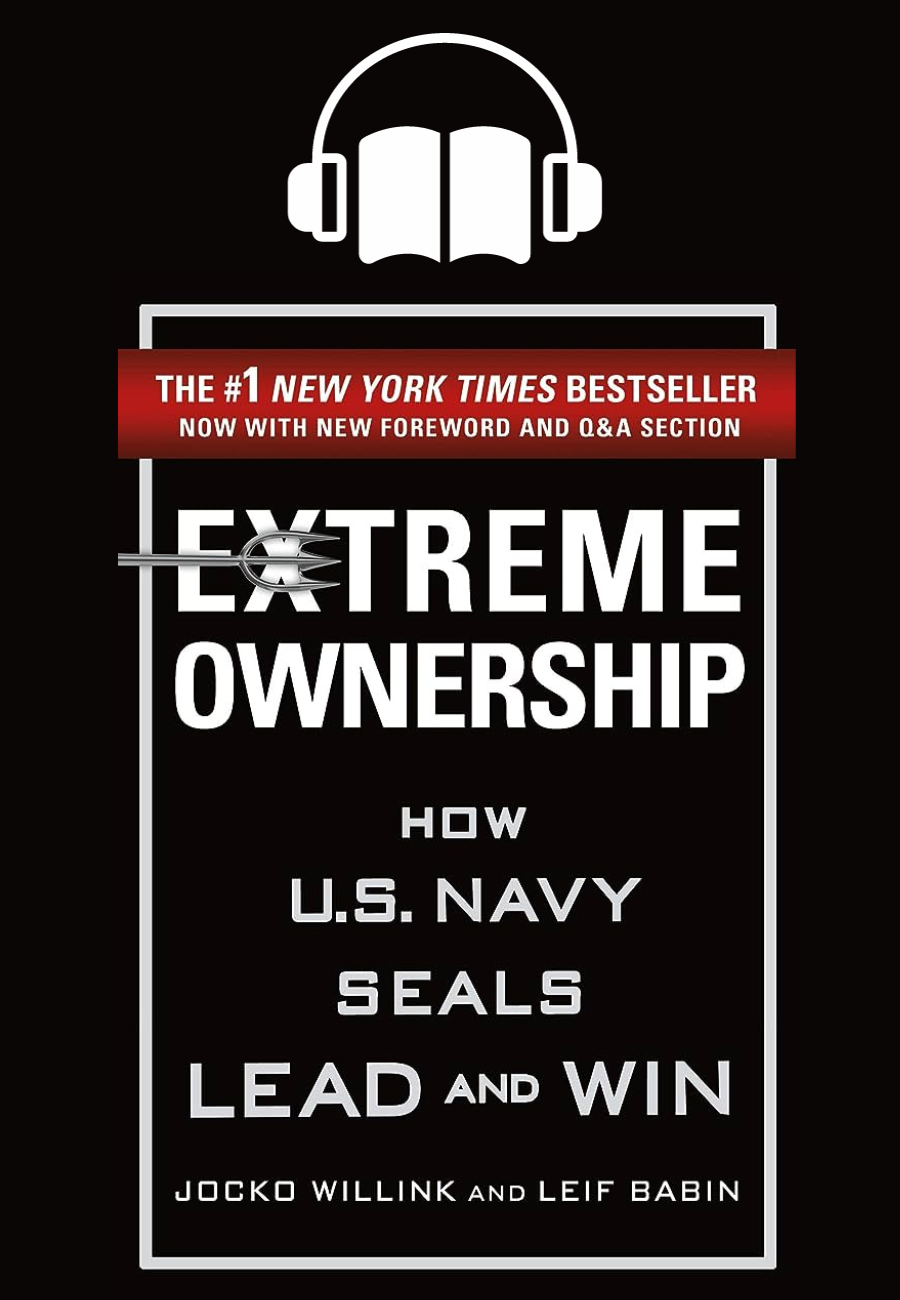
Extreme Ownership Audiobooks
Summary
"Extreme Ownership," authored by US Navy SEALs Jocko Willink and Leif Babin, delves into effective leadership by embracing absolute accountability. At its core lies the concept of taking full responsibility for every facet within one's realm without shifting blame—an ethos encapsulated as 'Extreme Ownership.' Tailored for anyone aspiring to master leadership, the book elucidates 12 pivotal principles, each chapter following the SCAL format—Situation, Complication, Action, and Learning.
Structured into three parts—Building the right mindset, Building a high-performance team, and Sustaining a high-performance team—the book unfolds 4 principles in each section, expounding actionable insights to manifest these principles into reality.
The first part focuses on instilling the right mindset:
- Extreme Ownership: Advocating for leaders to assume complete responsibility for mission explanation, tactical development, and team empowerment.
- Actions include refraining from blame-shifting, addressing failures objectively, mentoring underperformers, and acknowledging team contributions.
- No Bad Teams, Only Bad Leaders: Stipulating that a leader's triumph hinges on their team's success, emphasizing the importance of standards, grooming junior leaders, and conducting honest team evaluations.
- Belief in the Mission: Underlining the significance of a leader's genuine belief in the mission, stressing clear communication, alignment of goals, and inspiring teammates by elucidating the 'why' behind actions.
- Check Your Ego: Emphasizing humility over personal agendas, cautioning against ego-driven decision-making, and fostering a culture where team success surpasses personal achievements.
The second part emphasizes building a high-performance team:
- Cover and Move: Advocating for teamwork, emphasizing the unity of elements within a team towards a collective mission, and nurturing a supportive culture.
- Simple: Highlighting the importance of simplicity in comprehension, encouraging questions, defining roles clearly, and implementing straightforward standard operating procedures.
- Prioritize and Execute: Guiding leaders to discern and execute high-priority tasks amidst challenges, employing contingency planning, and assisting subordinates in prioritizing effectively.
- Decentralized Command: Promoting delegation, empowering junior leaders, emphasizing flexibility in leadership roles, and fostering seamless communication across hierarchies.
The final section, focused on sustaining high-performance teams, elaborates on:
- Planning: Stressing the importance of detailed planning, delegation in planning processes, risk mitigation, and post-operational analysis for continuous improvement.
- Leading Up and Down: Encouraging leaders to engage with both superiors and subordinates, demonstrating proactive leadership in understanding challenges, and effectively communicating upwards without undermining authority.
- Decisiveness Amid Uncertainty: Urging leaders to make informed decisions even with imperfect information, advocating against decision paralysis, and embracing a balanced approach to decision-making.
- Discipline Equals Freedom: Establishing disciplined procedures to enhance operational freedom, alongside elucidating the dichotomy of leadership traits—balancing strengths and weaknesses in diverse situations to become a versatile and effective leader.

